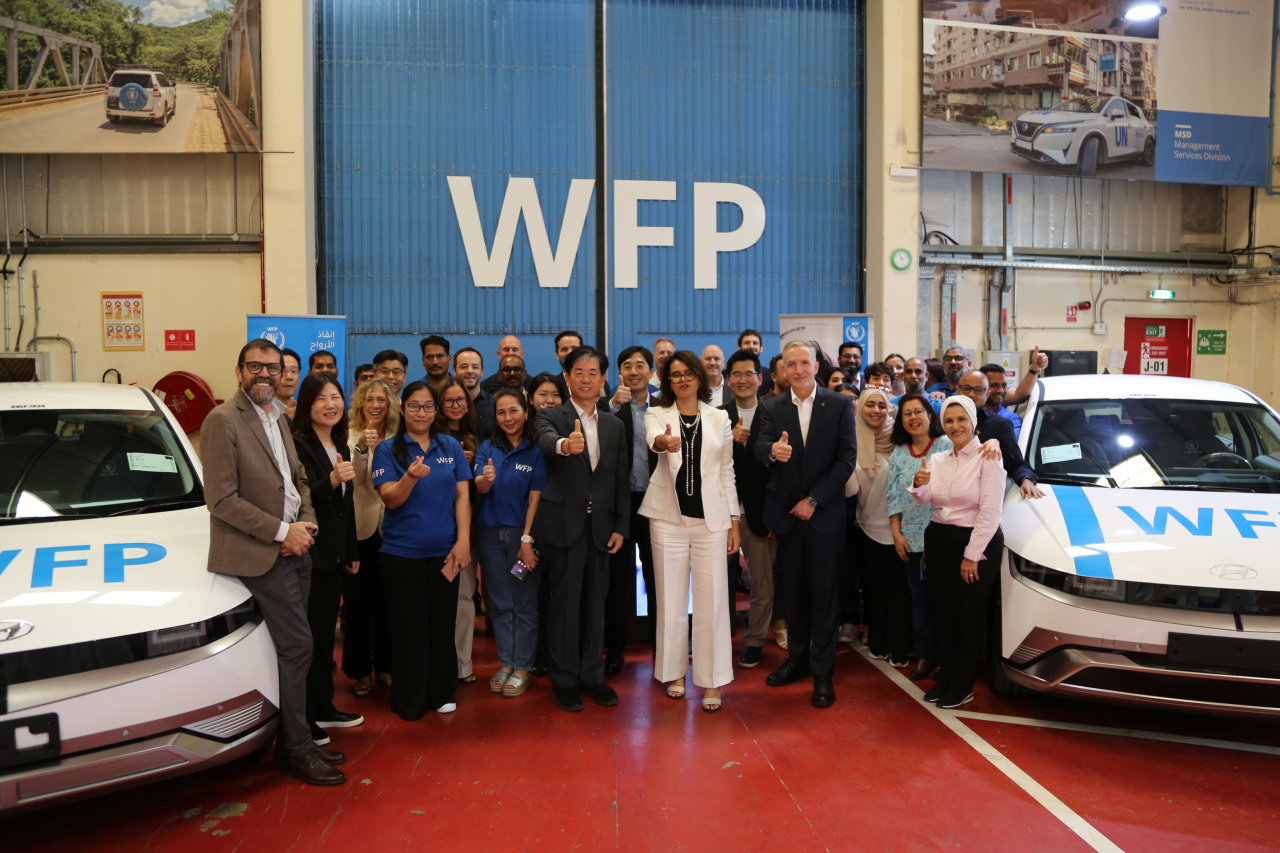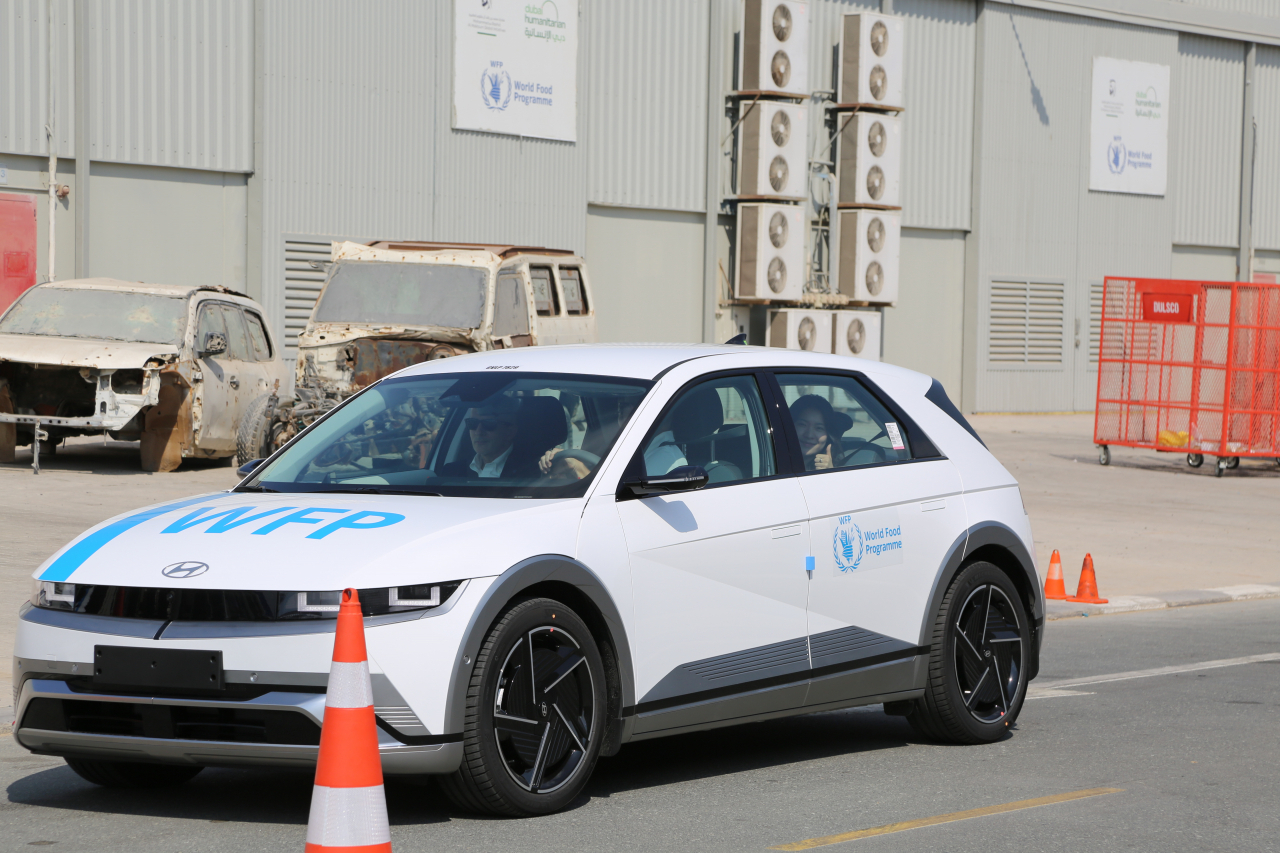
 |
| Sara Adam (center), UN World Food Programme director of management services; Lee Hang-soo (center left), Hyundai’s senior vice president of policy support; and Stephen Anderson (center right), director of WFP’s UAE office, pose with WFP staff alongside the donated Ioniq 5 vehicles at a handover ceremony in Dubai on Thursday. (Hyundai Motor Group) |
Hyundai Motor Group has donated eight Ioniq 5 electric vehicles to the United Nations World Food Programme to support its humanitarian missions with cleaner, more sustainable transportation, the automaker said Friday.
As the world’s largest hunger-relief organization, WFP is at the forefront of efforts to end food insecurity and malnutrition, particularly in areas affected by conflict and extreme poverty. Through this partnership, Hyundai and WFP aim to make humanitarian aid efforts more eco-friendly by incorporating electric vehicles into WFP’s global operations.
“By integrating eco-friendly technology into humanitarian aid, Hyundai, together with WFP, hopes to set an example of sustainable practices within the global aid community,” a Hyundai official said.
The handover ceremony took place at WFP’s vehicle base in Dubai on Thursday. It marked the official start of Hyundai’s partnership with WFP, aimed at helping the organization reduce its carbon footprint as it delivers food and supplies to communities in need, the company said.
The event was attended by senior representatives from both organizations, including Lee Hang-soo, Hyundai’s senior vice president of policy support; Sara Adam, director of WFP’s management services division; and Stephen Anderson, director of WFP’s UAE Office.
 |
| WFP staff take Hyundai’s donated Ioniq 5 vehicles for a test drive as part of the handover ceremony. (Hyundai Motor Group) |
Hyundai said the eight Ioniq 5 EVs will be deployed across WFP offices in Rome, Egypt, Panama, South Africa, the Philippines and Thailand, with two vehicles stationed in the United Arab Emirates. In Egypt, for example, the Ioniq 5 assigned to WFP’s regional headquarters in Cairo will help teams deliver food and assistance in crisis zones across North Africa and the Middle East, where access to resources is often limited and conditions can be challenging.
In addition to donating the vehicles, Hyundai has provided funding to install charging stations and renewable energy systems at each WFP location receiving an Ioniq 5. This infrastructure support is critical, as it ensures the electric vehicles remain operational even in areas where traditional fueling options are scarce, the automaker explained.
The Hyundai-WFP partnership was first announced in July at a ceremony attended by Hyundai Motor Group President Chang Jae-hoon and WFP Executive Director Cindy McCain. The initiative aligns with the United Nations’ Sustainable Development Goals, a global agenda that includes ending hunger and combating climate change by 2030.









